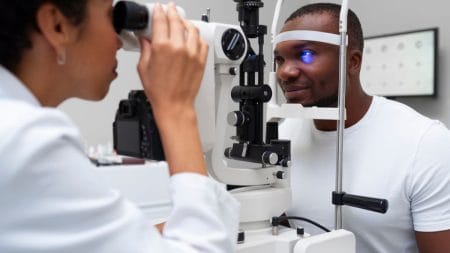Access to legal representation is crucial, especially during difficult times when legal issues arise. However, hiring a private lawyer can be expensive, and not everyone can afford these costs. This is where legal aid lawyers come into play. Legal aid lawyers provide affordable or free legal services to people who qualify based on their financial situation. This article will guide you on how to locate a legal aid lawyer in your area, ensuring you get the assistance you need.
What Is a Legal Aid Lawyer?
A legal aid lawyer is a professional who offers legal services to individuals who cannot afford to hire a private lawyer. They are often funded by government programs, non-profit organizations, or charitable initiatives. Legal aid lawyers handle various cases, including family law, housing issues, criminal defense, and employment disputes.
Step 1: Determine Your Eligibility
Before you start looking for a legal aid lawyer in your area, it’s important to understand if you qualify for their services. Eligibility is typically based on:
- Income Level: You may need to provide proof of income to show that you meet the requirements for assistance.
- Case Type: Legal aid lawyers usually handle specific types of cases. Make sure your case is one they cover.
- Residency: Some programs require you to reside in a certain area or region to qualify for their services.
Check with local legal aid offices or websites to review their specific criteria.
Step 2: Start Your Search
Here’s how you can locate a legal aid lawyer in your area:
1. Search Online for Legal Aid Services
The internet is a valuable tool for finding legal aid in your area. Use search terms like “legal aid lawyer near me” or “free legal services in [your area].” Most legal aid organizations have websites where you can learn about their services and apply for assistance.
2. Contact Local Legal Aid Organizations
Most countries have legal aid societies or organizations dedicated to providing free or low-cost legal services. In South Africa, for instance, Legal Aid South Africa offers services nationwide. Contact their offices or visit their website to find lawyers near you.
3. Reach Out to Community Centers
Community centers often partner with legal aid organizations to offer services to residents. They may host legal clinics where lawyers provide free consultations or help individuals complete legal documents.
4. Visit Courthouses
Many courthouses have information desks or self-help centers that can connect you with legal aid services. Ask about programs or clinics specifically designed for people who need free legal help.
5. Ask for Referrals
Talk to friends, family members, or social workers who may have experience with legal aid services. They can recommend trusted legal aid lawyers or organizations they’ve worked with in the past.
Step 3: Utilize Legal Aid Directories
Legal aid directories are designed to help individuals find the right resources quickly. Here are some reliable directories:
- Legal Aid South Africa Website: Their website provides contact details for legal aid offices across the country.
- Law Society Websites: Many law societies maintain a directory of lawyers, including those who work in legal aid.
- Online Referral Services: Platforms like ProBono.Org in South Africa connect people with lawyers offering free or low-cost services.
Step 4: Visit Legal Aid Clinics
Legal aid clinics are community-based services where you can meet with a lawyer for advice. These clinics are often held in community halls, schools, or libraries and provide free or low-cost legal consultations.
To find a clinic in your area:
- Check the websites of local legal aid organizations.
- Look for advertisements or posters in community spaces.
- Call your nearest legal aid office for clinic schedules.
Step 5: Contact Non-Profit Organizations
Non-profit organizations often provide legal aid services as part of their mission. These groups focus on specific issues, such as:
- Women’s Rights: Organizations like the Women’s Legal Centre in South Africa help women with issues like domestic violence or divorce.
- Children’s Rights: Child advocacy groups assist with cases involving custody, abuse, or access to education.
- Human Rights: Groups like the Legal Resources Centre provide assistance for human rights violations.
Step 6: Know Your Rights When Seeking Legal Aid
When contacting a legal aid lawyer, you have the right to:
- Clear Information: They should explain your eligibility and the services they offer.
- Confidentiality: All discussions with your lawyer are private.
- Professional Representation: Legal aid lawyers must follow the same ethical and professional standards as private lawyers.
If you’re unsure about any aspect of their services, don’t hesitate to ask questions.
Common Challenges and How to Overcome Them
Finding a legal aid lawyer in your area can sometimes be challenging. Here are common obstacles and solutions:
1. Long Wait Times
Legal aid services are in high demand, which may lead to delays. To avoid long waits:
- Apply as soon as possible.
- Be flexible with your schedule for consultations.
- Explore multiple legal aid organizations.
2. Limited Resources
Some legal aid organizations may not handle your specific case type. In this situation:
- Look for non-profits or advocacy groups focused on your issue.
- Ask if they can refer you to another organization.
3. Language Barriers
If language is an issue, request assistance from a translator or look for legal aid organizations offering services in your preferred language.
Benefits of Legal Aid Lawyers
Legal aid lawyers can make a significant difference in your life, especially if you’re facing complex legal issues. Here’s how they help:
- Access to Justice: They ensure everyone, regardless of income, has legal representation.
- Expertise: Legal aid lawyers are trained professionals who understand the law and can guide you through the legal process.
- Cost Savings: Their services are free or significantly reduced, making legal assistance affordable.
Read also: What Cases Can Legal Aid Represent You For? A Comprehensive Guide
Locating a legal aid lawyer in your area doesn’t have to be overwhelming. By following the steps outlined in this guide, you can find affordable or free legal services tailored to your needs. Remember, legal aid lawyers are here to help you navigate the legal system, ensuring your rights are protected and your voice is heard.










